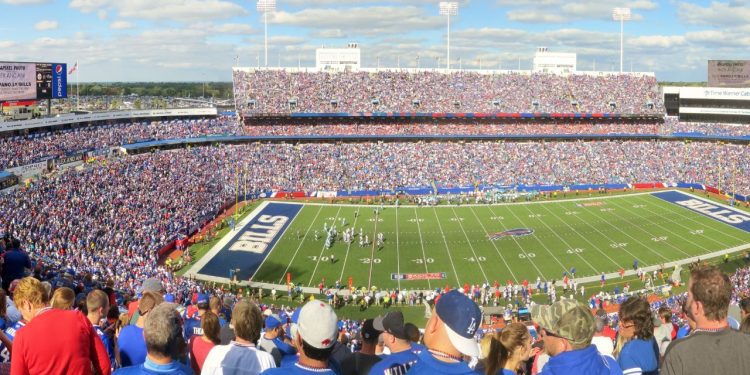The National Football League (NFL), renowned for its exclusivity, has seen NFL Franchises prices skyrocket to levels beyond the reach of many billionaires. However, the league is on the verge of a potential game-changer: allowing private equity firms to invest in teams. This move could significantly alter the business landscape of the NFL and its beloved teams.
The Financial Surge of NFL Franchises
Valuations of NFL teams have seen unprecedented growth in recent years. A prime example is the record-breaking sale of the Washington Commanders. Dan Snyder, who bought the team for $800 million in 1999, sold it for an astounding $6.05 billion in 2022 to a group led by Josh Harris. This deal even surpassed the $4.65 billion sale of the Denver Broncos in 2021, marking the highest price ever paid for an American sports franchise.
The Billionaire Dilemma
With franchise prices soaring, even billionaires find it challenging to afford these coveted assets. This financial reality has prompted the NFL to reconsider its stance on private equity investments. Private equity firms, with a staggering $1.2 trillion ready for deployment, are eager to step in. These firms, adept at buying and flipping businesses, have already made significant inroads into other major sports leagues, including the NBA, MLS, MLB, and NHL.
NFL’s Historical Stance and Upcoming Changes
Traditionally, the NFL has barred private equity firms from investing in its teams, aiming to maintain the league as an exclusive insiders’ club. However, the league’s financial dynamics are shifting. Since mid-2023, a special NFL committee has been evaluating potential rule changes to accommodate private equity investments. PJT Partners, serving as the intermediary, is exploring a plan that would allow private equity firms to own up to 30% of a franchise, with no single firm holding more than a 10% stake. Although a vote on this proposal was expected last month, it has been postponed to later this year.
The Interest and Potential Impact
Several franchises are poised to engage with private equity firms once the new rules are established. “The NFL acknowledges the prohibitive costs of purchasing teams,” said Josh Harlan, founder of Harlan Capital Partners. Allowing private equity investments would inject liquidity into the market, facilitating easier transactions for current owners.
For instance, to assemble the $6 billion required to purchase the Commanders, Josh Harris had to form a 20-person consortium, including notable figures like Blackstone’s David Blitzer, former Google CEO Eric Schmidt, and NBA legend Magic Johnson. Harris openly discussed the challenges of raising such capital, highlighting the difficulty even for the world’s wealthiest individuals.
Simplifying the Vetting Process
The stringent vetting process for NFL ownership could be streamlined by allowing private equity participation. Once a private equity firm is vetted, it can potentially engage in multiple transactions, expediting the overall process.
Structuring Private Equity Investments
The NFL is still deliberating the exact structure for private equity investments. It might approve a select group of firms, ensuring that capital is readily available regardless of the firms’ current financial status. However, firms with investors from politically sensitive regions, such as China or Saudi Arabia, might face additional scrutiny.
Anticipated Changes and Benefits
Experts like Harlan believe that allowing private equity investment is inevitable and could happen as soon as this year. This change presents numerous advantages, including increased liquidity and a more efficient process for managing ownership transitions within the league.
Potential Private Equity Players
Several private equity firms are well-positioned to invest in NFL franchises:
- Dyal Capital: Part of Blue Owl, Dyal Capital was the first private equity fund to invest in the NBA. Dyal HomeCourt, launched in 2022, focuses on acquiring minority stakes in NBA franchises. To enter the NFL market, Dyal would need to create a dedicated fund, a process that could take several months.
- Sixth Street: With a $27 billion evergreen pool of capital, Sixth Street owns stakes in various sports entities, including Bay FC of the National Women’s Soccer League and the NBA’s San Antonio Spurs.
- Carlyle Group: Carlyle made its first direct sports team investment by agreeing to buy Seattle Reign FC. The firm, co-founded by David Rubenstein, is also involved in Major League Baseball through the acquisition of the Baltimore Orioles.
- RedBird Capital Partners: RedBird has significant investments in sports, including ownership of soccer clubs AC Milan and Toulouse FC, and stakes in Fenway Sports Group.
- Arctos Partners: Approved to invest in multiple sports leagues, Arctos owns stakes in teams like the Golden State Warriors and the Boston Red Sox. Its second flagship sports fund closed with over $4.1 billion in capital commitments.
- Ares Management: Known for its direct lending prowess, Ares holds minority stakes in several sports teams, including the San Diego Padres and the Ottawa Senators. Its inaugural sports, media, and entertainment fund raised $3.7 billion in 2022.
- Clearlake Capital: Clearlake, which typically invests in middle-market technology and consumer sectors, gained prominence with its 2022 acquisition of Chelsea FC.
- Silver Lake: Focusing on tech, Silver Lake owns stakes in companies that invest in sports teams, such as Diamond Baseball Holdings and City Football Group.
Conclusion – NFL Franchises
The potential entry of private equity firms into the NFL marks a significant shift in the league’s financial landscape. As franchise valuations continue to climb, allowing private equity investments could provide the necessary liquidity and support for the league’s growth. While the exact framework is still under discussion, the move promises to bring new dynamics to the NFL, benefiting current owners and ensuring the league’s continued financial success.
Stay tuned to ImpactWealth.Org for more updates on this developing story and other significant financial news.
















